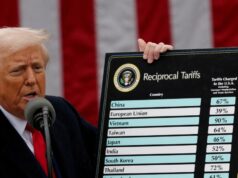“Politics is the art of the possible. So whatever is happening in Fiji, is just a reminder that domestic politics changes very quickly. And politicians who start off as radicals, as hard liners end up being more pragmatic and more inclusive in their approaches. Rabuka’s cabinet also tells us about it. I mean, there is more inclusivity now.”
Rahul Mishra, associate professor at the School of Indo-Pacific Studies, Jawaharlal Nehru University, was a guest on The Gist, answering questions on the visit of Fiji’s Prime Minister Sitiveni Rabuka.
Rabuka began as an army officer, in which capacity he led two coups in 1987 against incumbent duly elected governments, all on the claim of preserving the rights of ethnic Fijians, sons of the soil, from ethnic Indians.
His actions then saw attacks on the ethnic Indian community which had lived in Fiji for generations, resulting in the mass exodus of many.
But as Rabuka graduated into politics, his ideas and thinking began to change, first driven by the need to broaden his electoral base, and then by the realisation that the Indians had useful skills.
“You cannot marginalize roughly 40% of the people in the country who also happen to be big businessmen and (they are in) medicine and engineering, higher education, sectors, where they have been playing a prominent role,” Mishra noted.
It helped that Rabuka is staunchly opposed to Chinese military activities in the region. More interesting, Fiji is not very pro-America and prefers to keep the West at arms length, maintaining a more neutral position. This fits in well with India’s strategy.
“Of the nine documents signed (during Rabuka’s visit) I think the one that is of really far reaching strategic consequence is India trying to help Fiji in building its capabilities and securing its exclusive economic zones,” Mishra said, pointing out that “China has been fishing illegally (in Fijian waters).”
Add to that, the Fiji and the region is known to have substantial quantities of rare earths and minerals, that are in demand the world over no less India.
Tune in for more in this conversation with Rahul Mishra of the School of Indo-Pacific Studies, Jawaharlal Nehru University.
Thirty eight years in journalism, widely travelled, history buff with a preference for Old Monk Rum. Current interest/focus spans China, Technology and Trade. Recent reads: Steven Colls Directorate S and Alexander Frater's Chasing the Monsoon. Netflix/Prime video junkie. Loves animal videos on Facebook. Reluctant tweeter.




